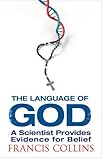Creation and evolution are not subjects I often read books on. Oftentimes it seems to me that both sides come to the argument with irreconcilable presuppositions and therefore end up talking past each other. However, since I read Francis Collins’ "The Language of God", which puts forth a case for theistic evolution (or "biologos" as he prefers to term it), I have been on the lookout for an appropriate book presenting the "other side" of the argument (see Prov 18:17). So this present volume piqued my interest, particularly since it brings a British perspective to what is often thought of as a particularly American controversy.
The book is made up of a collection of essays, many of which seek to respond to the arguments set forth by Denis Alexander, author of "Creation or Evolution: Do we have to choose". Interestingly the debate does not revolve around Genesis 1, with the familiar discussions of whether a "day" is 24 hours or a long period of time. Rather, the focus is on the historicity of Adam and Eve. Several contributors seek to demonstrate that the Bible not only presents them as historical characters, but relies on it to develop crucial doctrine.
And this is probably the major achievement of the book. It demonstrates that a denial of the historicity of Adam and Eve (or at least a denial that they are the ancestors of all human beings) results in some grave theological difficulties further along the line. These include making a nonsense of much of Paul’s teaching about Adam, and coming dangerously close to Gnosticism and Deism.
It is not until towards the end of the book that some scientifically focused essays are presented. This is no accident. For most (if not all) of the contributors, the bottom line is what the Bible teaches. They reject the notion that science should be given primacy over and above God’s written revelation. However, the essays on science seek to demonstrate several ways in which the scientific evidence bears more than one possible interpretation, and is not nearly so conclusive as is often suggested.
A couple of the scientific essays went a little over my head, as they dealt with some fairly complex biology. One key idea is that what was once thought of as "junk" in DNA, looks increasingly like it may actually be functional. In another essay, the statistical improbability of an amino acid forming in a primeval soup was well explained.
If I were to criticise this book, it would be along the lines that it would appear that not all the essays were originally written to be part of this book and hence there is a bit of overlap in arguments. Also the tone is forthright, and occasionally strident, meaning that it is likely to provoke a strong response from the opposite side of the argument.
Of course, to believe in creationism is to accept being branded a fool. R. T. Kendall’s essay offers the suggestion that this is true of some biblical doctrine or other in every age. In conclusion then, there is much food for thought here, and it should caution us against enthusiastically rushing to embrace evolution just because we fear looking stupid. I do have to agree with them that theistic evolution often ends up requiring super-human feats of hermeneutical gymnastics if it is to stand any chance of harmonising with the rest of Scripture.
The Word of God is unchanging, but scientific consensus slowly (and sometimes dramatically) shifts over time. I think that we should not be afraid to ask sceptical questions of evolution – there are still several very large leaps of faith required for those who hold to this theory.
Undoubtedly this book is not the final word on the subject, but it does make me wonder whether a simple faith in the historicity of Adam and Eve and their fall may end up turning out not to be so dumb after all.


